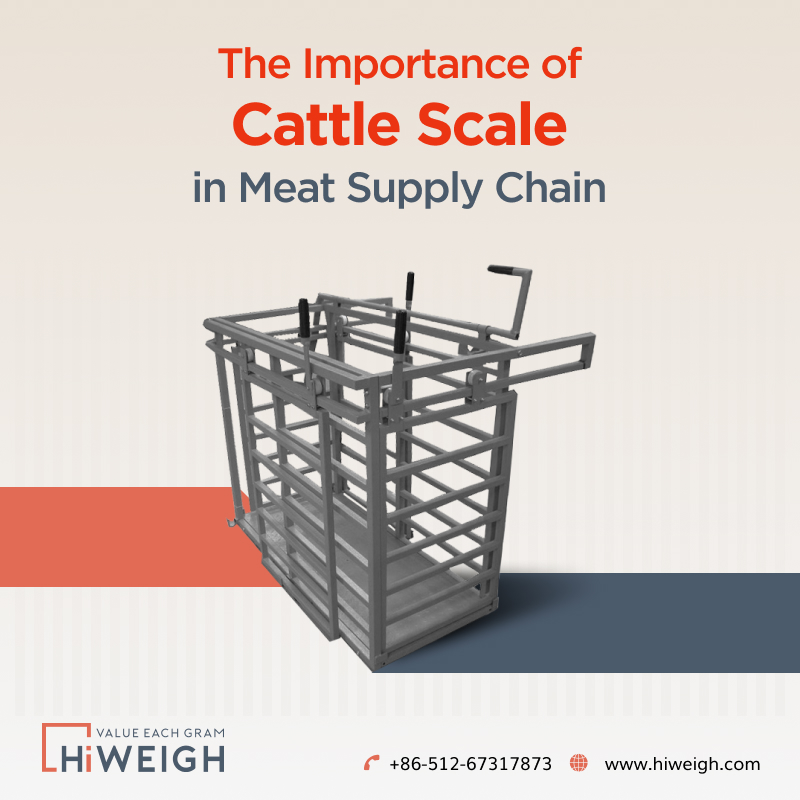Nobody will disagree that the meat industry plays an important role in feeding the world’s population. Starting from the farm to the consumer’s plate,maintaining quality and safety is paramount. One important tool to ensure the integrity of the meat supply chain is the livestock scale. Find out how beef scales ensure meat quality throughout the supply chain, from the first weight of the beef to the final product reaching the consumer’s table in the following points.



Precise weight measurement
Livestock scales allow accurate measurement of livestock weight, which is essential for various meat production processes. Accurate weight data helps determine optimal slaughter and ensures proper nutrition and health care, resulting in healthier animals and higher quality meat.
Proper Portion Control
In meat processing plants, a China cattle scale plays an important role in portion control. By accurately weighing cuts of meat, processors can ensure that consumers are getting the right amount of meat, whether it’s in packaged portions or at the deli counter. This accuracy helps maintain consistency and meet customer expectations.
Complying With Regulations
Cattle scales are an essential tool to comply with regulations in the meat industry. Many countries have regulations governing the sale of meat based on weight. Beef scales provide accurate weight measurements for pricing, labelling, and food safety compliance, ensuring consumers get the meat they pay for.
Quality Assurance
In the meat supply chain, quality assurance is crucial so that consumers receive only safe, high-quality meat. A livestock scale helps with quality control by tracking and monitoring weight changes during the production process. Deviations from the expected weight pattern can indicate potential health problems or improper handling, allowing early intervention and maintaining overall meat quality.
Inventory Management
A China cattle scale facilitate efficient inventory management in meat processing plants and cold stores. Accurate weight measurements of carcasses or individual cuts help track inventory, plan production schedules, and effectively manage inventory. This ensures that meat is always fresh, minimises waste, and optimises supply chain operations.
Prevention of Fraud
Unfortunately, fraud, such as counterfeiting or substitution of meat products, can occur in the meat industry. A livestock scale prevents such activity by ensuring accurate weight measurements. Any significant deviation from the expected weight range may raise concerns and require further investigation, thus protecting the integrity of the meat supply chain.
What Should You Consider When Investing in a Cattle Scale?
Investing in livestock is an important decision for ranchers and cattlemen. It is very important to choose the right livestock scale that meets your specific needs and provides accurate and reliable weight measurements.
Scale Capacity
One of the most important considerations is the capacity of the scale, which determines the maximum weight it can support. It is important to choose a scale that can comfortably support the weight of even the heaviest animals. To avoid overloading the unit, make sure the scale capacity meets your specific livestock requirements.
Size and design
Livestock scale size and design should be appropriate for your livestock handling facilities. Consider available space, animal movement through the system, and any unique requirements. Choose a scale that fits well with your existing infrastructure and allows animals to move easily and safely.
Precise measurements
Accurate weight measurements are critical to effective livestock management and decision-making. Look for livestock scales that offer high accuracy and precision when measuring weight. To ensure reliable and consistent measurements, consider the scale’s load cell technology, calibration capabilities, and any certifications or standards it adheres to.
Durability
Handling livestock can be demanding, so invest in a livestock scale built to withstand harsh conditions. Find scales that are made of durable materials, such as stainless steel or reinforced steel. Pay attention to the quality of the load cells, chassis, and overall construction to ensure long-term reliability and durability.
Final thoughts
Livestock scales are important tools that help maintain the quality, safety, and integrity of the meat supply chain. From accurate weight measurement to quality assurance, inventory, and traceability, these scales play an important role in every step of the process. By using accurate weight data, the meat industry can continue to deliver safe, high-quality meat products that meet consumer expectations and official standards.
